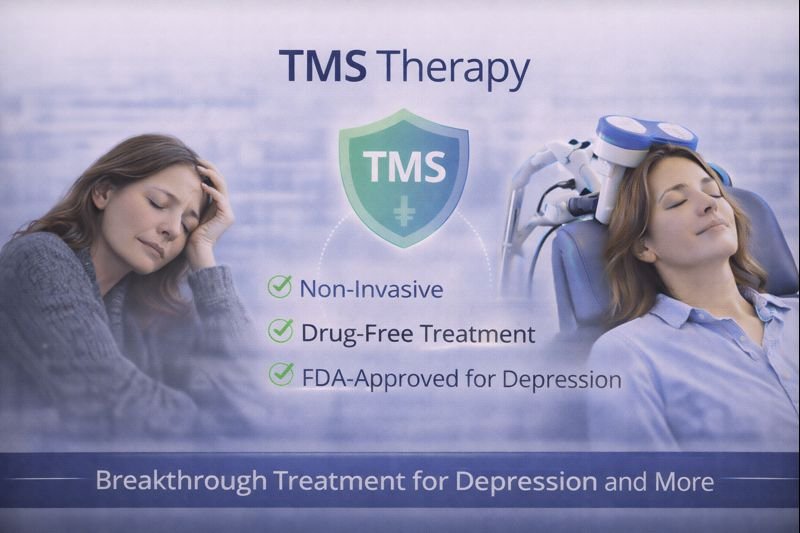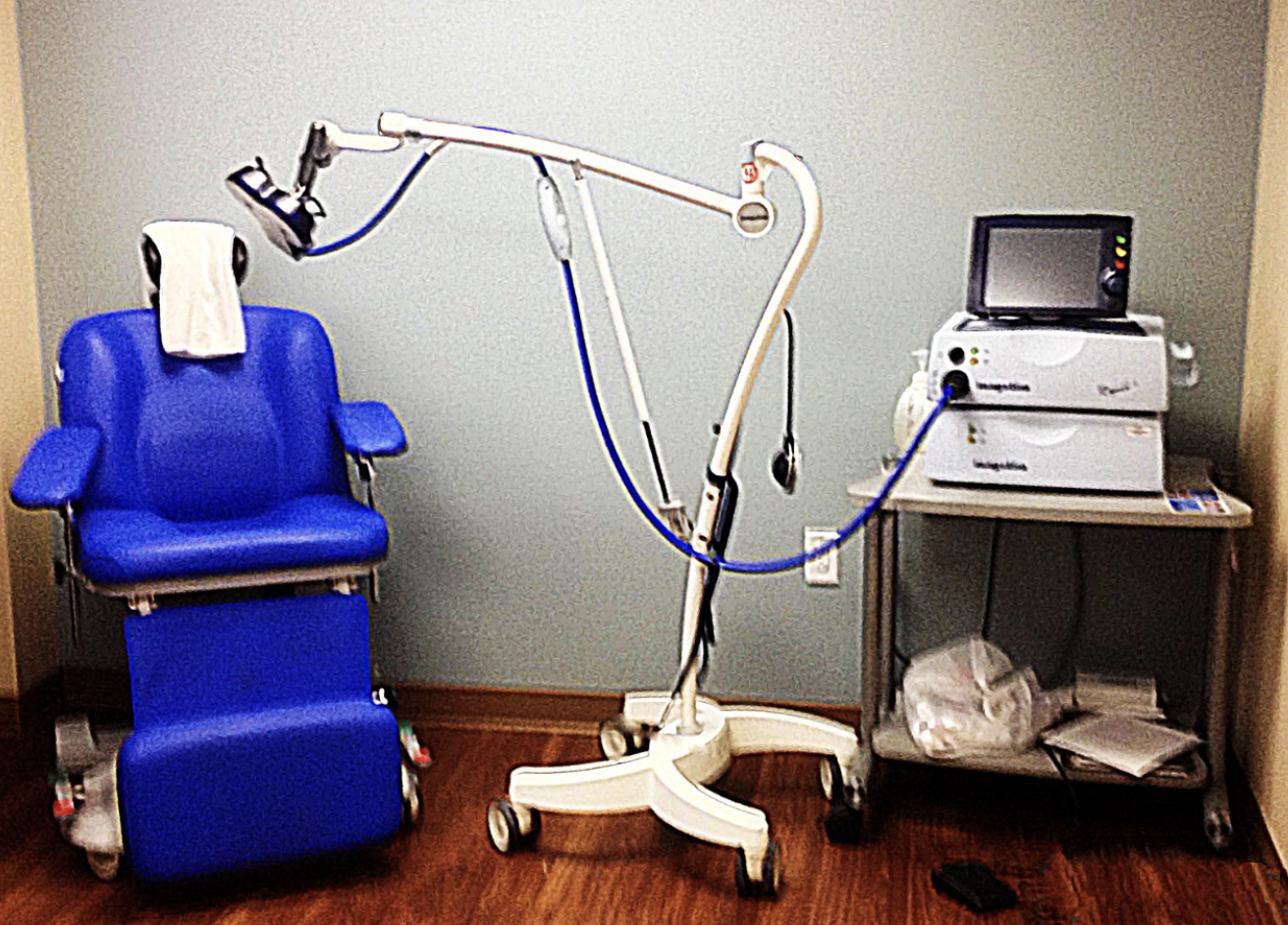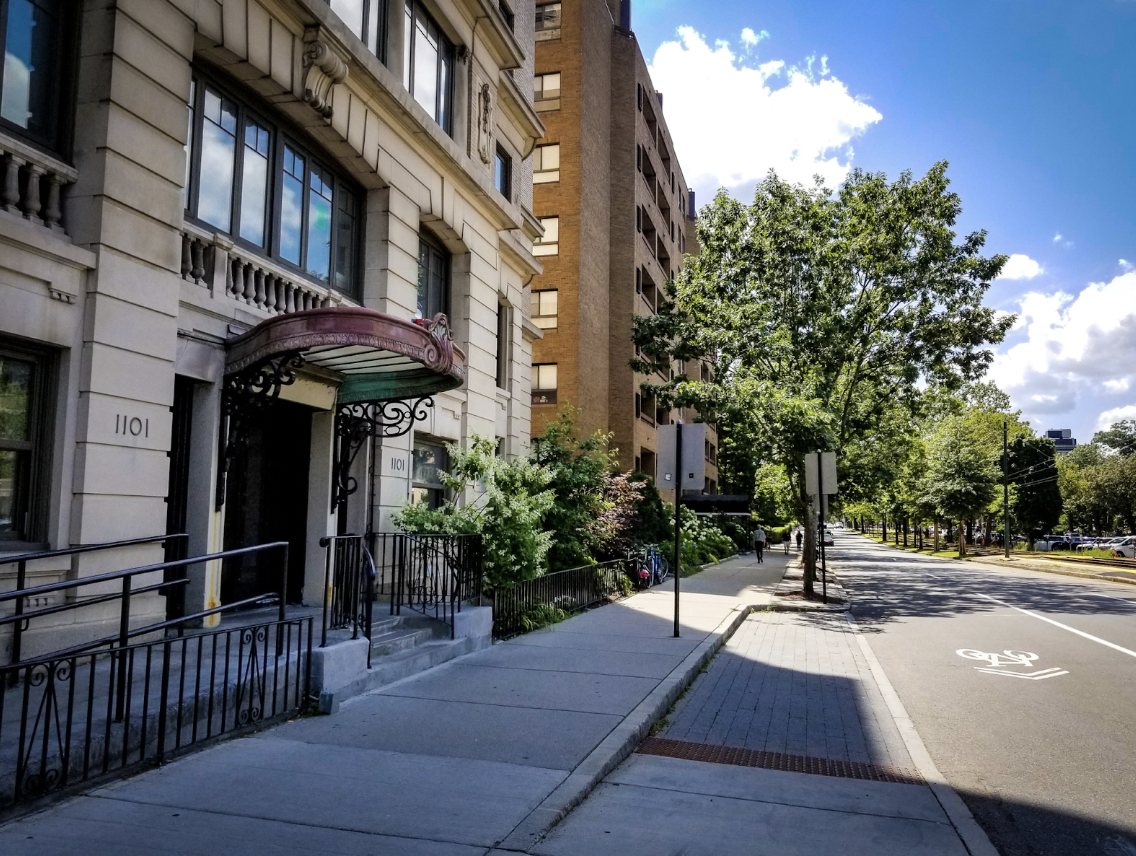TMS Therapy for Teens and Young Adults: Is It Safe and Effective?
Understanding TMS Therapy: A New Hope for Boston’s Youth
Depression doesn’t discriminate by age. For many teens and young adults in Boston neighborhoods like Brookline, Cambridge, Newton, Somerville, and Back Bay, depression can be an isolating and overwhelming experience. When traditional treatments such as medication and talk therapy fall short, many families begin searching for alternative solutions. One of the most promising options emerging in the mental health field is Transcranial Magnetic Stimulation (TMS).
At Dignity Brain Health, located in the heart of Brookline, MA, we specialize in providing FDA-approved TMS therapy for adolescents and young adults struggling with treatment-resistant depression. But how safe is TMS for teens? And more importantly, does it work?
Let’s explore.
What Is TMS Therapy?
TMS therapy is a non-invasive, drug-free treatment for depression. It uses magnetic pulses to stimulate underactive areas of the brain that are involved in mood regulation. Think of it like rebooting a computer system—except it’s your brain, and there’s no anesthesia, surgery, or downtime.
Key Benefits of TMS Therapy:
FDA-approved for major depressive disorder (MDD)
No systemic side effects like those of antidepressants
Safe and well-tolerated
Non-invasive and outpatient-based
Improved emotional and cognitive function
Is TMS Safe for Teens and Young Adults?
When considering any new treatment—especially for adolescents and young adults—safety is always the top priority. While Transcranial Magnetic Stimulation (TMS) is currently FDA-approved for adults 18 and older, ongoing research and real-world clinical experience suggest that it can also be a safe and effective intervention for teens, particularly those struggling with treatment-resistant depression.
What the Research Says
Although large-scale, long-term studies in pediatric populations are still underway, early findings are very encouraging. A 2025 study published in the Journal of affective disorders investigated the safety and tolerability of repetitive TMS (rTMS) in adolescents aged 13 to 17. Participants received high-frequency stimulation over the left dorsolateral prefrontal cortex—a region commonly underactive in people with depression.
The results were promising:
✅ No serious adverse events occurred during or after treatment
✅ Participants experienced statistically significant reductions in depression symptoms over the treatment course
✅ Common side effects were mild and transient, including light headaches, scalp discomfort, or slight fatigue during sessions
✅ Cognitive function was either unchanged or slightly improved post-treatment (Gu et al., 2025)
These findings have been echoed in other small trials and observational studies, which show improved mood, energy levels, and overall functioning in teens undergoing TMS, especially when traditional interventions such as SSRIs or cognitive behavioral therapy (CBT) have failed (Hett et al., 2021).
Why Is TMS So Well-Tolerated?
Unlike medications, which affect the entire body and can have systemic side effects—such as weight gain, sleep disturbances, or emotional blunting—TMS is targeted and localized. It stimulates only the brain circuits involved in mood regulation, without interfering with other areas of the brain or body.
As a result, TMS doesn’t cause:
Sedation
Sexual dysfunction
Weight gain
Emotional numbing
Withdrawal symptoms
This can be especially valuable for teens, who are often more sensitive to medication side effects and whose brains are still developing. TMS offers a non-pharmacological option that supports healing without compromising cognition, school performance, or social development.
How Effective Is TMS for Depression in Young People?
Studies show TMS can significantly reduce depressive symptoms—even in cases where multiple medications and therapies have failed.
A few highlights from recent research:
In a clinical trial of adolescents, TMS led to significant improvements in mood and functioning over 6 weeks of treatment (Hett et al., 2021).
Another study showed that TMS had comparable or better response rates than traditional antidepressants, without the associated systemic side effects (Ikawa et al., 2024).
While individual responses vary, our patients at Dignity Brain Health often report:
🔹 Increased energy and focus
🔹 Better sleep and appetite
🔹 Enhanced ability to engage in school, work, and relationships
Common Questions About TMS for Teens
Does TMS Hurt?
Not at all! Most patients describe the sensation as a light tapping on the scalp. Sessions typically last about 20–30 minutes, and you can resume normal activities immediately afterward.
Will My Teen Still Need Medication?
That depends. Some patients are able to reduce or stop medication after completing a TMS course, while others continue a combination of treatments. We’ll work closely with you and your prescribing provider to make an informed decision.
How Long Does It Take to See Results?
Many patients notice improvements after 2–4 weeks of regular sessions. A full course typically includes 30–36 sessions over six weeks.
Is TMS Covered by Insurance?
Most major insurance providers—including Blue Cross Blue Shield of Massachusetts, Tufts Health Plan, and Harvard Pilgrim—cover TMS therapy for depression that hasn't responded to other treatments. Our office can help you verify your insurance benefits.
Is Your Teen Struggling with Depression in Boston? Here's What to Do Next
Depression isn’t just sadness. It can rob teens and young adults of their ability to enjoy life, connect with friends, or thrive at school. If your teen is struggling, know that you’re not alone—and help is available.
TMS therapy offers a new path forward, and Dignity Brain Health is here to guide your family every step of the way.
🌟 Take the first step:
Call us at (617) 855-7288
Visit our Brookline clinic at 1101 Beacon St 8 West, Brookline, MA
🌍 Helpful Resources in the Boston Area
Samaritans Boston – 24/7 emotional support
Boston Children's Hospital Psychiatry – Child and adolescent mental health services
Cambridge Health Alliance – Behavioral health support
NAMI Massachusetts – Mental health education and advocacy
Connect With Dignity Brain Health
Have questions about TMS therapy for your teen or young adult? We’d love to hear from you! Leave a comment below, call us, or book an appointment to learn more about how TMS therapy in Brookline, MA can help your loved one thrive.
References
Bejenaru, A. M., & Malhi, N. K. (2022). Use of Repetitive Transcranial Magnetic Stimulation in Child Psychiatry. Innovations in clinical neuroscience, 19(4-6), 11–22.
Gu, L. M., Deng, C. J., Shang, D. W., Huang, S. Q., Nie, S., Yang, X. H., Ning, Y. P., Huang, X. B., Balbuena, L., Xiang, Y. T., & Zheng, W. (2025). Efficacy and safety of low-frequency repetitive transcranial magnetic stimulation in adolescents with first-episode major depressive disorder: A randomized, double-blind, sham-controlled pilot trial. Journal of affective disorders, 370, 190–197. https://doi.org/10.1016/j.jad.2024.11.001
Hett, D., Rogers, J., Humpston, C., & Marwaha, S. (2021). Repetitive Transcranial Magnetic Stimulation (rTMS) for the Treatment of Depression in Adolescence: A Systematic Review. Journal of affective disorders, 278, 460–469. https://doi.org/10.1016/j.jad.2020.09.058
Ikawa, H., Takeda, Y., Osawa, R., Sato, A., Mizuno, H., & Noda, Y. (2024). A Retrospective Case-Control Study on the Differences in the Effectiveness of Theta-Burst Stimulation Therapy for Depression with and without Antidepressant Medication. Journal of clinical medicine, 13(2), 399. https://doi.org/10.3390/jcm13020399
—
CONTACT INFO:
DIGNITY BRAIN HEALTH
1101 BEACON STREET, SUITE 8W
BROOKLINE, MA, 02446
UNITED STATES
Phone: (617) 855-7288



